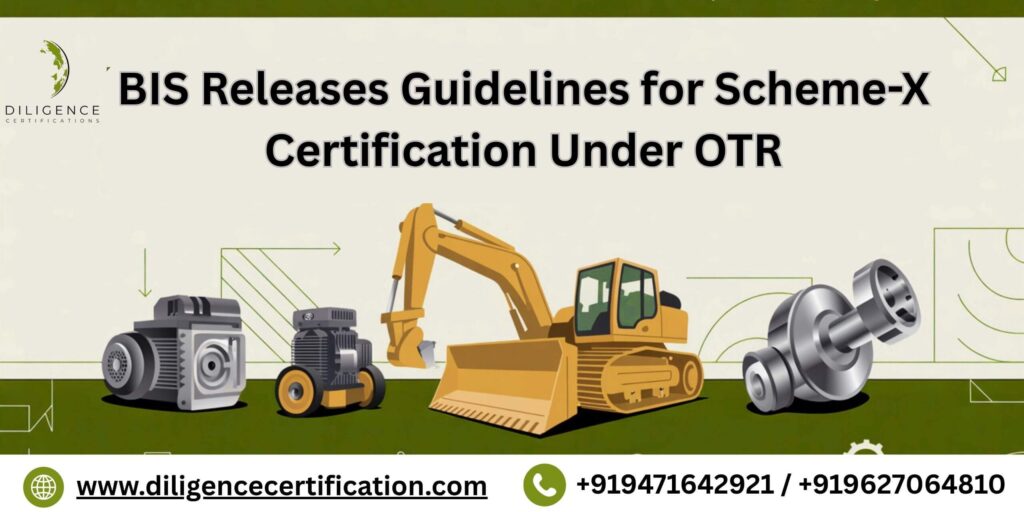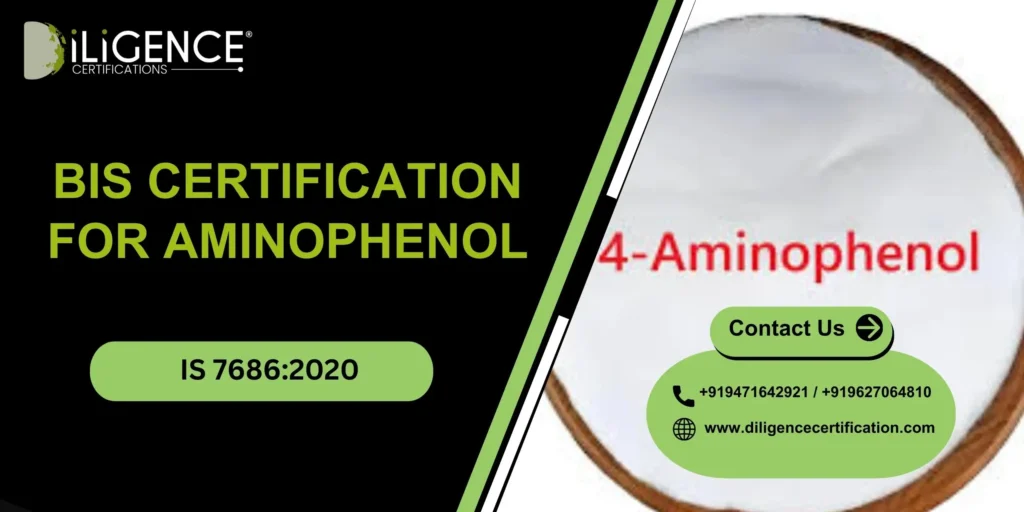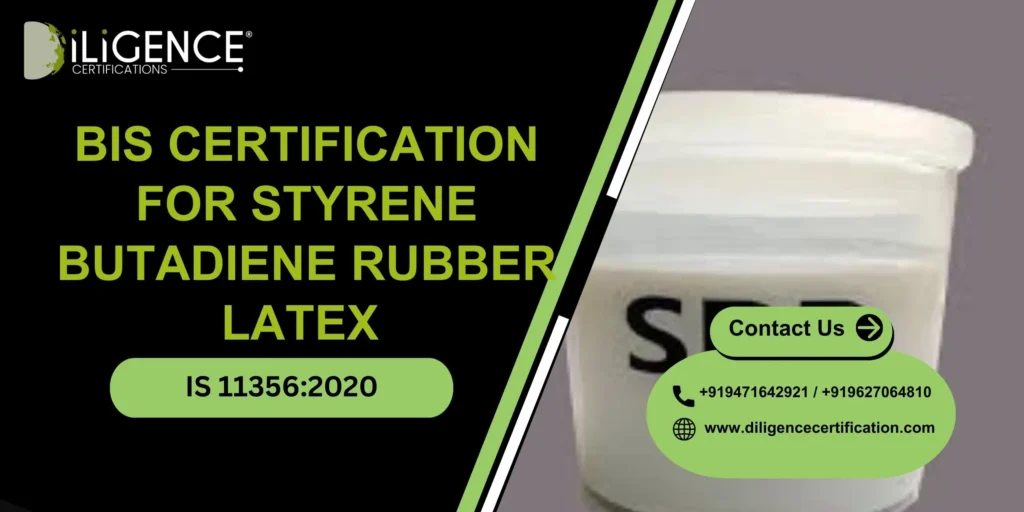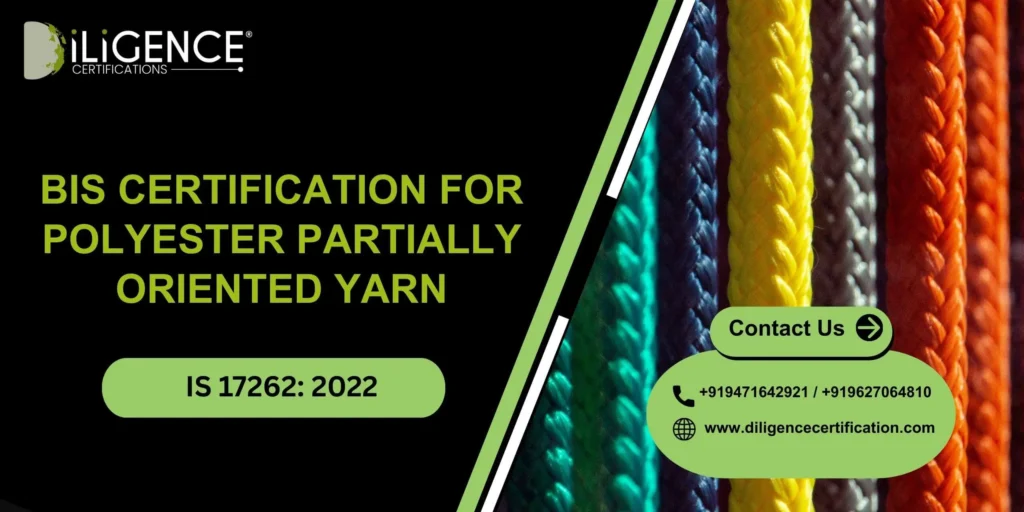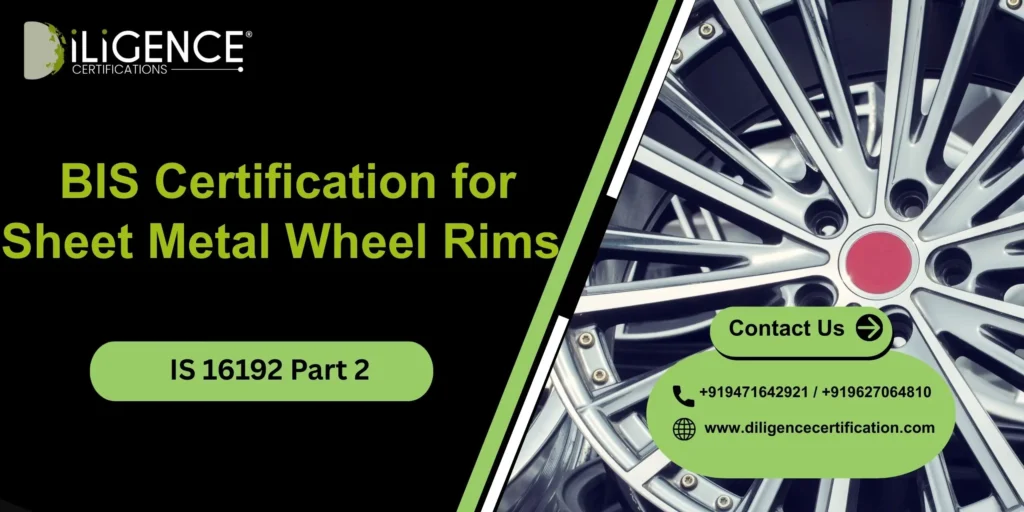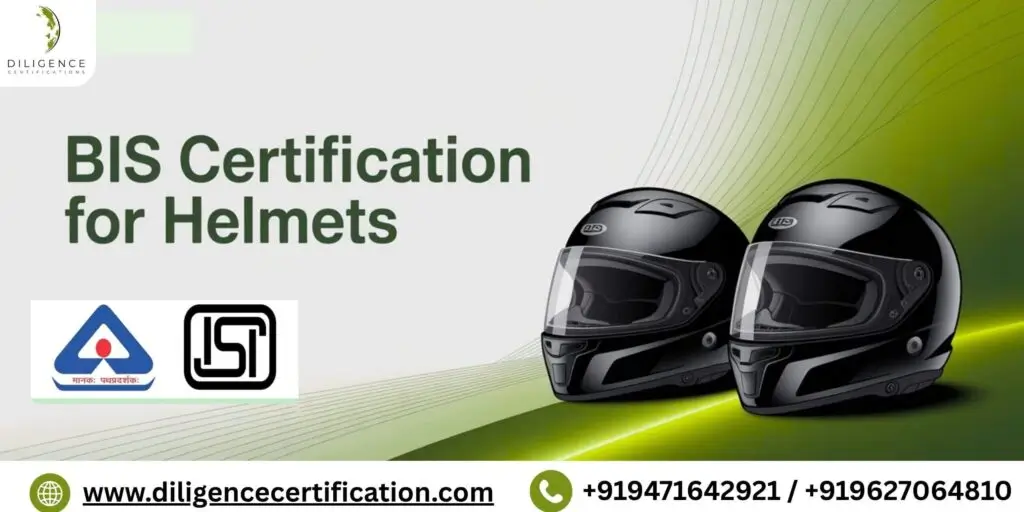- BIS Guidelines for Scheme-X certification under OTR.
- Scheme-X aligns Indian machinery standards with global benchmarks.
- Omnibus Technical Regulation (OTR) ensures uniform compliance.
- The new BIS Scheme targets heavy and precision machinery sectors.
- Certification streamlines market access and improves product quality.
Introduction
In early 2025, a high-end packaging machinery brand came to us with a challenge. They had already CE and ISO certified their newest model capable of export, so we told them we could not get their equipment with BIS approval for local sale in India and they were mystified. The reason is that they had not considered the new Scheme-X under the Omnibus Technical Regulation (OTR).
This case exemplifies the changing identity of the Indian standardization landscape. India is focused on enhancing product quality, while also aligning with global safety standards; BIS is now being driven to finalise new Scheme-X guidelines for certification under the OTR. To this point, BIS wanted to offer a way for uniform compliance and efforts to rid confusion for manufacturers and suppliers regarding their transition from voluntary to compulsory certification.
What is Scheme-X Certification Under OTR?
Scheme-X is a new certification scheme from BIS. It is part of the Omnibus Technical Regulation (OTR) and combines several existing sector-based schemes into one. This is important because it allows for standardized enforcement.
Scheme-X is focused on machinery and capital goods that are currently voluntary certification but are being moved to mandatory registration based on safety and performance.
“Scheme-X is effectively BIS’ way of protecting the future of industrial machinery in India by making it resemble international conformity.”
Scheme-X has resolved the loophole of manufacturers being able to get away with complying by simply using international certificates even when in practice these certificates are not part of a mandatory regime. Currently, when a machine receives certification from UL, CE or ISO, it also needs to receive a Scheme-X certification if it wishes to operate in India; this will fundamentally change the way OEMs structure product development and market access strategies.
Why Introduce Scheme X?
Until recently, machinery certification standards were fragmented. Some products followed ISI Mark Certification, others fell under CRS (Compulsory Registration Scheme). This created regulatory confusion, particularly for:
- Importers dealing with pre-certified foreign goods
- MSMEs launching domestic production lines
- Indian OEMs exporting globally but selling locally without BIS
Key reasons Scheme-X was launched include:
- Eliminate redundancy in product testing
- Integrate OTR across multiple sectors
- Pre-define transition timelines for voluntary to mandatory schemes
- Minimize delays in new product launches
Beyond that, the Indian government, through BIS, aims to boost Make in India initiatives and prevent dumping of sub-standard machinery from foreign markets. In many client cases, this has already prevented malfunctioning or low-quality machines from entering critical industrial sectors.
What Does OTR (Omnibus Technical Regulation) Mean?
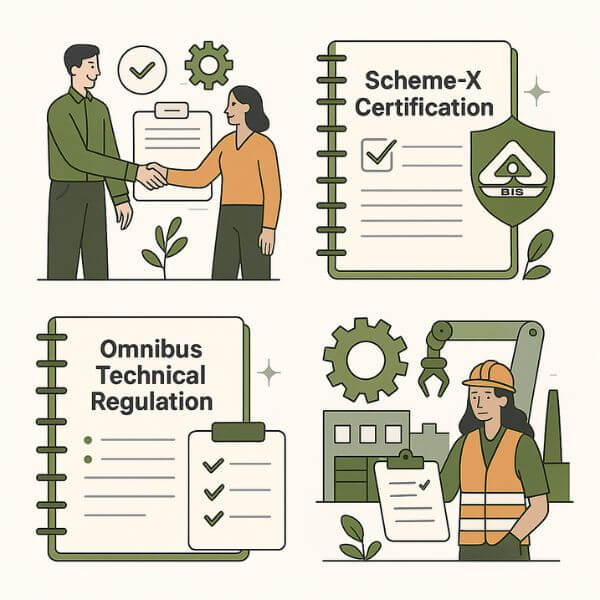
OTR stands for Omnibus Technical Regulation, a consolidated regulatory framework introduced by BIS to ensure:
- Technical uniformity
- Accelerated compliance
- Cross-sector applicability
It essentially brings together various fragmented sector-specific rules under one unified directive, allowing better governance and enforcement.
Under OTR, Scheme-X will become a pillar for certifying machinery that’s not traditionally covered by existing BIS schemes.
Examples of applicable machinery include:
- High-precision CNC machines
- Packaging and filling lines
- Industrial HVAC systems
- Automated conveyors
- Textile dyeing and spinning units
- Agriculture processing systems
The scope of the scheme may soon be extended to include 3D printing equipment, robotics platforms, and energy-efficient boilers.
Who Needs Scheme X Certification?
The following categories of stakeholders must comply:
- Domestic Manufacturers of heavy machinery
- International exporters targeting Indian markets
- Importers and distributors of semi-finished mechanical products
- Startups in industrial automation sector
- Industrial design consultants building custom machinery
If your machine runs on more than 5kW and handles mechanical processing, chances are it now needs Scheme-X compliance under OTR.
This includes not only original equipment manufacturers (OEMs) but also resellers who assemble or rebrand foreign machinery. Distributors and warehouse managers must also ensure machines being stocked have proper Scheme-X labeling.
Key Highlights of BIS Scheme-X Certification Guidelines
1. Dual Certification Options
Scheme-X offers two options: a Licence to Use the Standard Mark for regular production and a Certificate of Conformity (CoC) for batches, prototypes, or one-time production.
2. Application and Audit Process
Manufacturers must submit Form-I with a detailed Technical File. BIS conducts a desk audit and a site audit to verify technical and safety compliance.
3. Technical File Requirements
Include product specs, safety validations, test reports, risk analysis, photos, and internal quality procedures, as per BIS Scheme-X norms.
4. Focus on Safety Compliance
BIS references IS 16819 and other standards to ensure proper risk assessment, especially for machinery and industrial equipment.
5. Site Audit & Evaluation
BIS audits under Scheme-X typically last four man-days, covering manufacturing processes, safety tests, and live demonstrations.
6. For Foreign Manufacturers
Foreign applicants must apply through FMCS, appoint an Authorised Indian Representative (AIR), and support testing, inspections, and PBGs.
7. Validity and Rejection
Licences under BIS Scheme-X Certification are valid for 3–6 years. Applications may be rejected after a 21-day notice if issues remain unresolved.
8. Fee Structure
All BIS Scheme-X fees are prepaid. The updated fee schedule is available on the BIS website and includes application, audit, and certification costs.
BIS Guidelines for Scheme-X Certification (2025 Update)
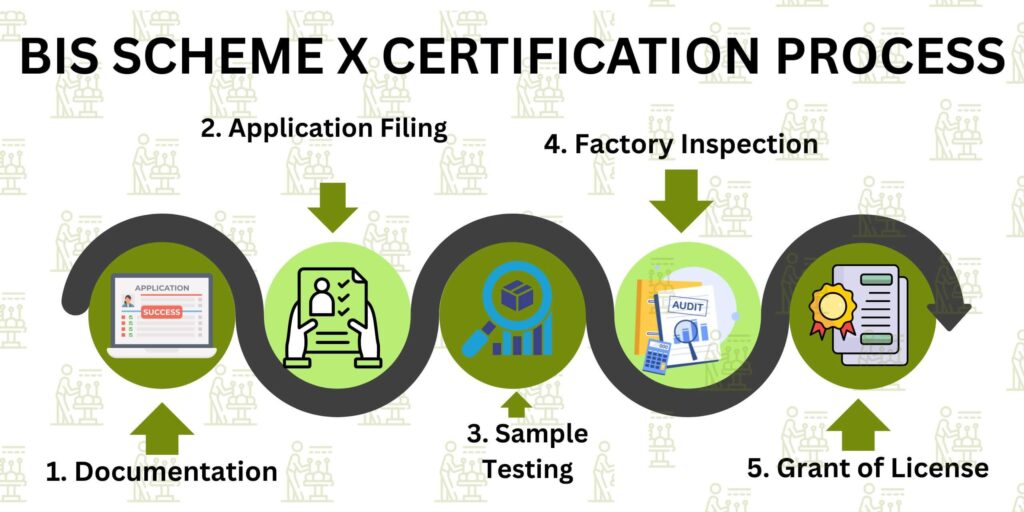
The latest BIS guidelines released in 2025 outline key steps:
1. Product Classification
Classify your product under the specified OTR category list available on bis.gov.in. Products must match harmonized system codes and BIS sub-classifications.
2. Document Preparation
Submit:
- Technical Manual
- Process Flow Diagram
- Safety Protocol
- Material Composition Report
- Control panel layout and wiring diagrams
3. Testing & Lab Accreditation
Ensure lab testing at BIS-recognized centers. Results must be uploaded on the BIS Manakonline Portal. Key parameters tested include insulation resistance, load stress tolerance, emergency shutdown functions, and user interface ergonomics.
4. Factory Inspection
BIS officials will conduct physical factory inspections for key machinery components. Video surveillance recordings may also be requested to verify assembly processes.
5. Grant of Certificate
Upon satisfactory evaluation, BIS issues the Scheme-X Certificate, valid for 2 years (renewable). A product file will be generated in the Manakonline database.
6. Marking Requirements
Use of BIS mark with Scheme-X logo is mandatory on all certified machines. Tampering with labels or incorrect use will lead to cancellation of certificate.
Benefits of Scheme-X Under OTR
Simplifies Machinery Compliance
One certification replaces multiple fragmented schemes, reducing documentation fatigue and compliance overlaps.
Boosts Export Readiness
Indian manufacturers become globally competitive by complying with OTR. This adds confidence to international buyers about the safety and performance of Indian goods.
Improves Product Quality
Testing parameters now align with global safety benchmarks like IEC, UL, and ISO. Product performance data becomes more reliable.
Reduces Red Tape
Digital process streamlines document submission and approval. The Manakonline portal integrates e-signatures and one-click renewals.
Enhances Investor Confidence
International collaborations become easier with clearer regulatory paths. Compliance risk is reduced, making Indian partners more attractive.
Conclusion
The release of BIS guidelines for Scheme X certification under OTR marks a significant step in India’s industrial transformation. Whether you’re a legacy OEM or an emerging startup, aligning with this certification is no longer optional—it’s essential.
Embracing Scheme X doesn’t just help you meet compliance—it positions your brand as a future-ready market leader. This change is not just about regulation—it’s about evolving your business for long-term resilience, sustainability, and quality.
Need help navigating Scheme X certification? Partner with BIS experts and Get free Consultation at Diligence Certifications and ensure your machinery is ready for tomorrow’s standards.
Frequently Asked Questions
What is BIS Scheme-X Certification?
Scheme-X is a fast-track certification process under BIS’s Omnibus Technical Regulation (OTR) for urgent product compliance.
Who needs Scheme-X Certification?
Manufacturers or importers of products newly brought under regulation or with safety concerns must obtain it.
Is Scheme-X applicable to foreign manufacturers?
Yes, but they must appoint an Indian Authorized Representative and use BIS-recognized labs.
What are the major benefits of Scheme X?
Faster approval, minimal surveillance, and simplified documentation compared to regular BIS schemes
How long does it take to get certified under Scheme X?
It usually takes 2–4 weeks if all documents and test reports are in order.
What documents are required?
Product test reports, factory license, quality manual, and application form are essential.
What is OTR in BIS?
The Omnibus Technical Regulation allows BIS to enforce standards quickly through mechanisms like Scheme X.
How is it different from CRS or FMCS?
Scheme X is faster and less strict; CRS is for electronics, while FMCS is for foreign manufacturers only.
Is testing mandatory for Scheme X?
Yes, products must be tested at BIS-recognized labs or those approved under mutual agreements.
Who can assist in the application process?
BIS consultants like Diligence Certifications can help with end-to-end filing, testing, and approvals.

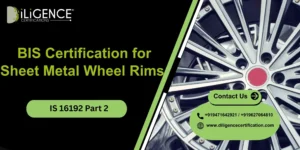
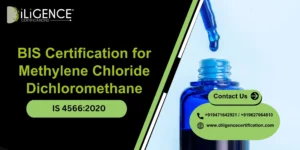
 BIS Certification
BIS Certification
 CDSCO
CDSCO
 CPCB
CPCB
 LMPC
LMPC
 WPC Approval
WPC Approval
 Global Approvals
Global Approvals
 TEC
TEC
 ARAI
ARAI
 BEE
BEE
 ISO Certification
ISO Certification
 Drone Registration
Drone Registration
 NOC For Steel
NOC For Steel



















 Business Registration
Business Registration














 Legal Services
Legal Services
 Trademark Registration
Trademark Registration
 Copyright Registration
Copyright Registration
 Patent Registration
Patent Registration
